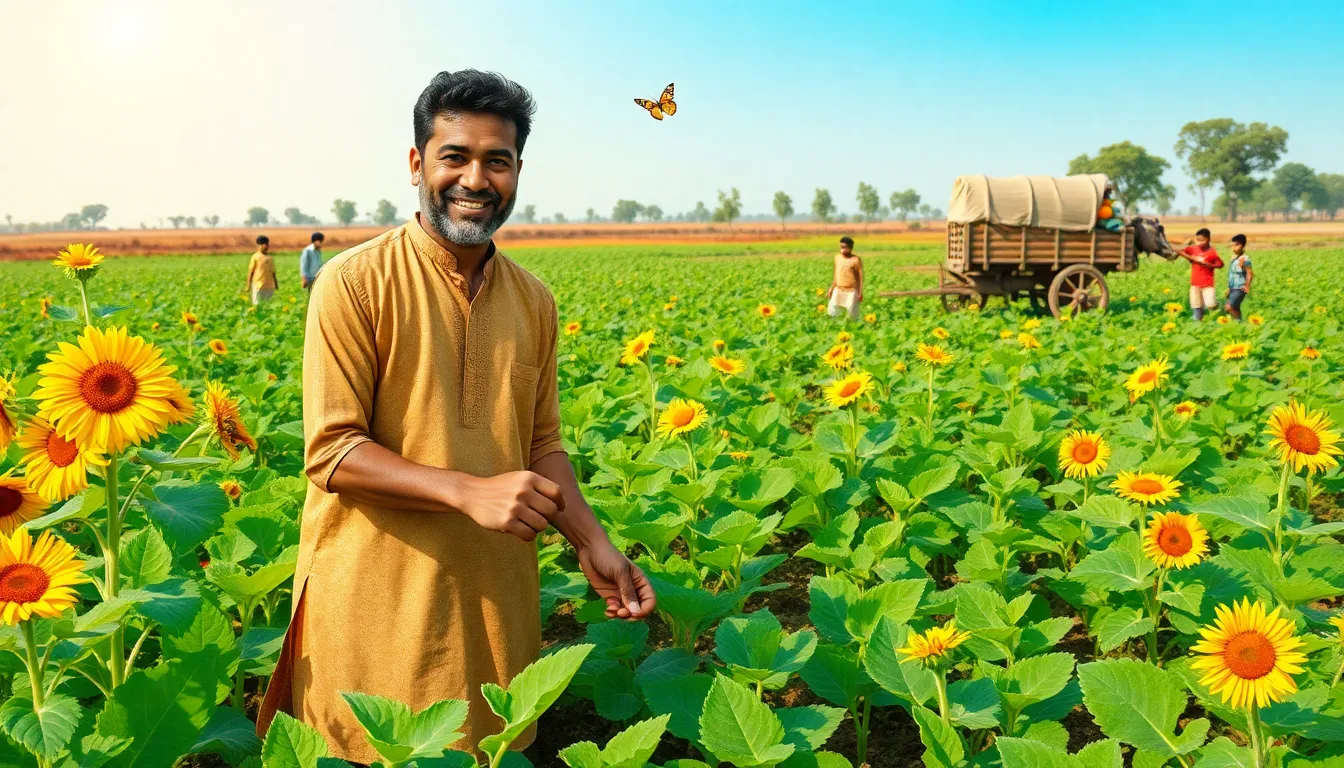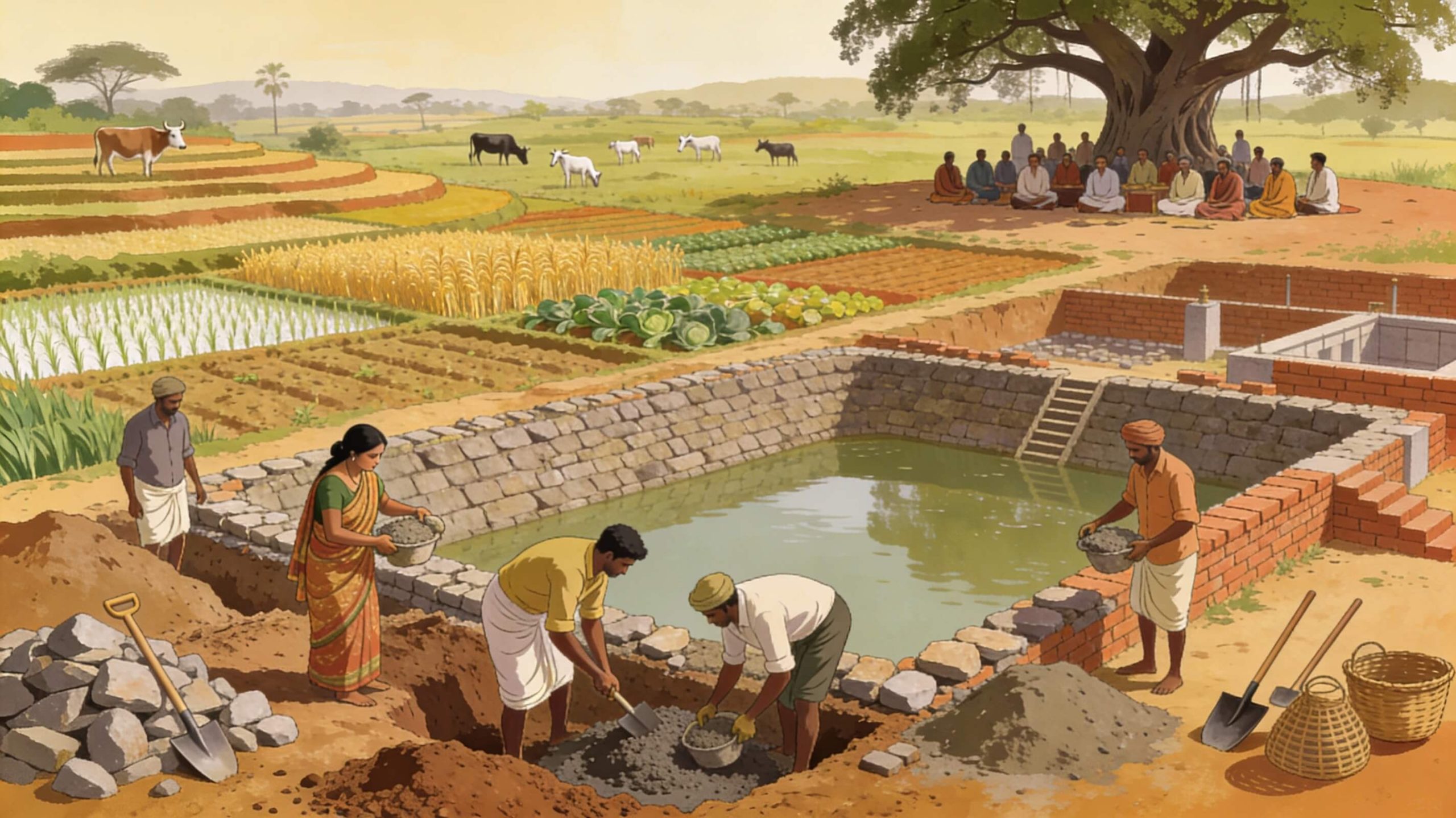The Indian government is set to introduce a new law aimed at improving the quality of seeds and pesticides available to farmers. This initiative is part of a larger campaign called the Viksit Krishi Sankalp Abhiyan, which aims to modernize Indian agriculture and enhance farmer welfare. Union Minister for Agriculture and Farmers’ Welfare, Shivraj Singh Chouhan, announced this plan following numerous complaints from farmers about poor-quality seeds and pesticides. By introducing the Seed Amendment Bill in the upcoming Winter Session of Parliament, the government hopes to ensure that only certified, high-quality inputs reach farmers.
Chouhan emphasized the importance of farmer-scientist interaction. Krishi Vigyan Kendras (KVKs) will play a vital role in this initiative. KVK scientists will now be required to spend at least three days a week in the field, engaging directly with farmers. This is crucial to understand their challenges and provide timely advice. The Minister himself plans to visit farms two days a week to connect with farmers and gain insights into their needs.
The Viksit Krishi Sankalp Abhiyan has already seen significant success. Over 1.34 crore farmers have been engaged through this campaign, which involved teams of scientists and agricultural experts visiting more than 1.42 lakh villages. Chouhan stated that bridging the knowledge gap between research and practical farming is essential for improving agricultural productivity and sustainability.
One of the major concerns raised during the campaign was the issue of substandard seeds and pesticides. Farmers have reported that using these inputs often leads to disappointing results. To address this, the government plans to strengthen the Seed Act, ensuring rigorous quality control mechanisms are in place. This includes improving the network of laboratories that test seeds, pesticides, and fertilizers.
Currently, India lacks sufficient laboratories to meet testing demands. The government will instruct states and central agencies to obtain accreditation for their testing facilities. The National Accreditation Board for Testing and Calibration Laboratories (NABL) will oversee this process. The Minister also mentioned that testing fees for samples collected from farmers will be covered by the Rashtriya Krishi Vikas Yojana, a central government scheme aimed at agricultural development.
Furthermore, to prevent manipulation of test results, new software will be developed. This system will randomly select retailers from whom samples will be collected. Each sample will be packed and encoded with a QR code, ensuring transparency in the testing process.
Chouhan also acknowledged other pressing issues faced by farmers, such as climate change, lack of fodder, and damage caused by wild animals. He urged scientists to spend more time in the field to assist farmers in adapting to these challenges. The government is exploring the use of modern technology, like artificial intelligence, for crop monitoring and creating deterrent systems to protect crops from wild animals.
In addition to improving seed and pesticide quality, the government is working on an Action Plan specifically for soybean crops, with consultations scheduled for June 26. Similar programs will be conducted for other key crops such as cotton, sugarcane, pulses, and oilseeds.
The overarching goal of these initiatives is to ensure food security, nutritional availability, and profitable farming. Chouhan emphasized the need for a collaborative approach involving farmers, scientists, institutions, and policymakers. The vision is to create a unified platform for agricultural development that benefits all stakeholders. With these measures, the Indian government aims to position India as a global leader in food production, ensuring a sustainable agricultural future for generations to come.





